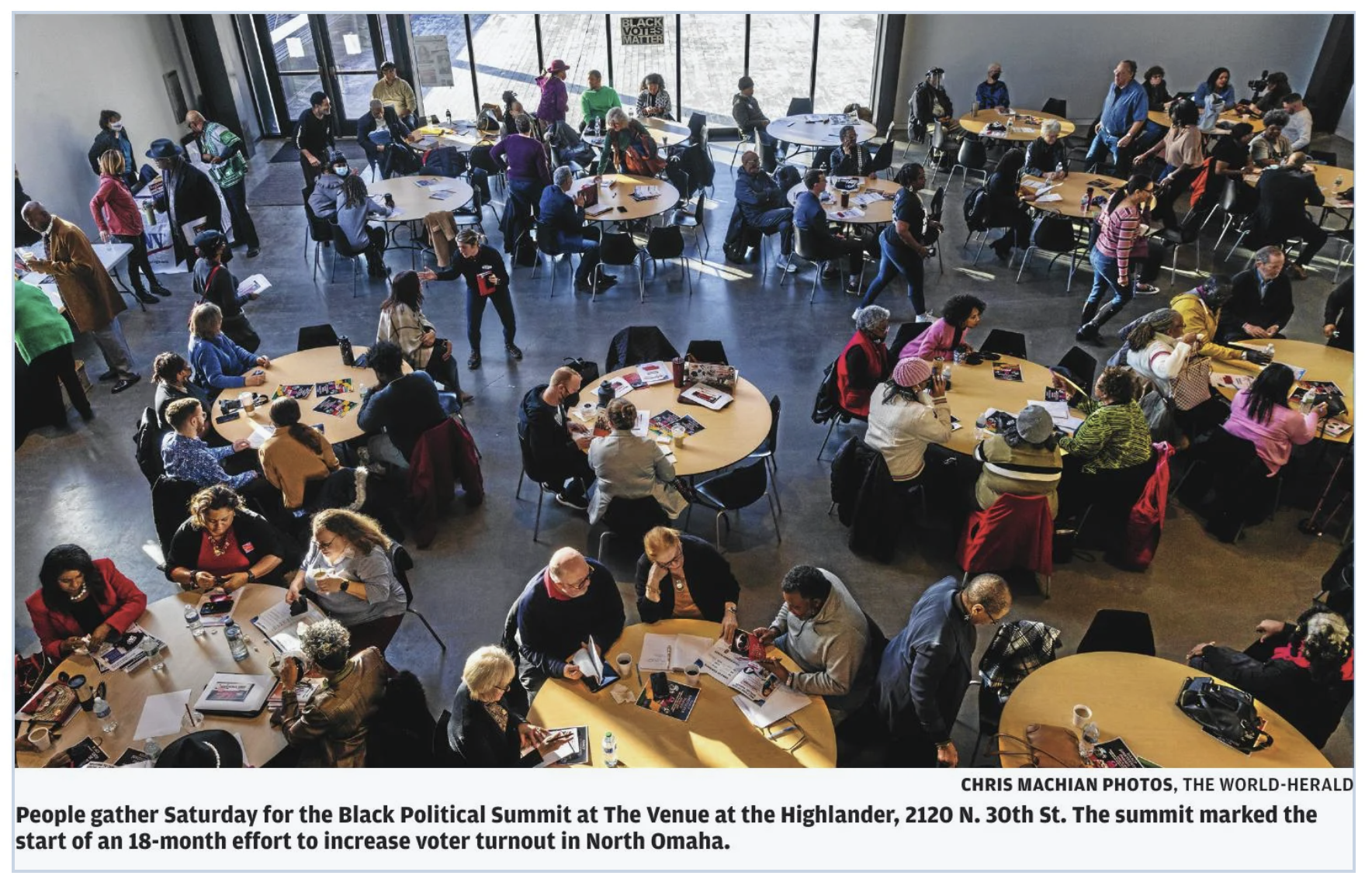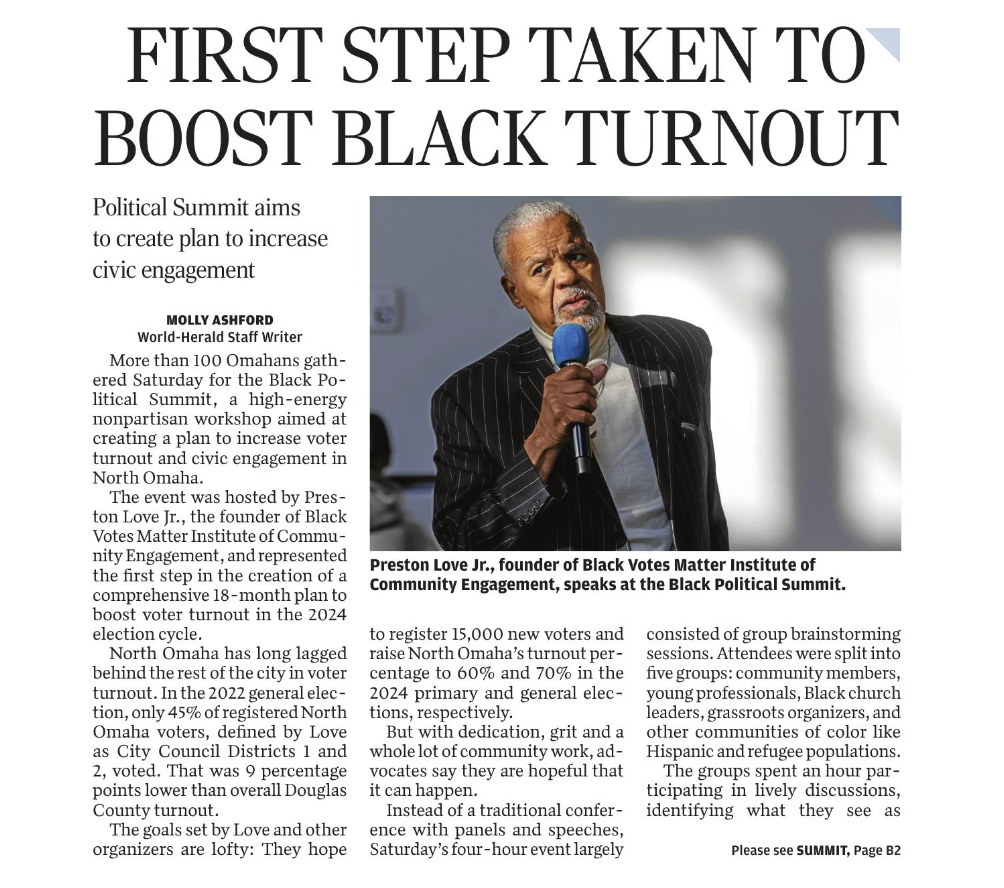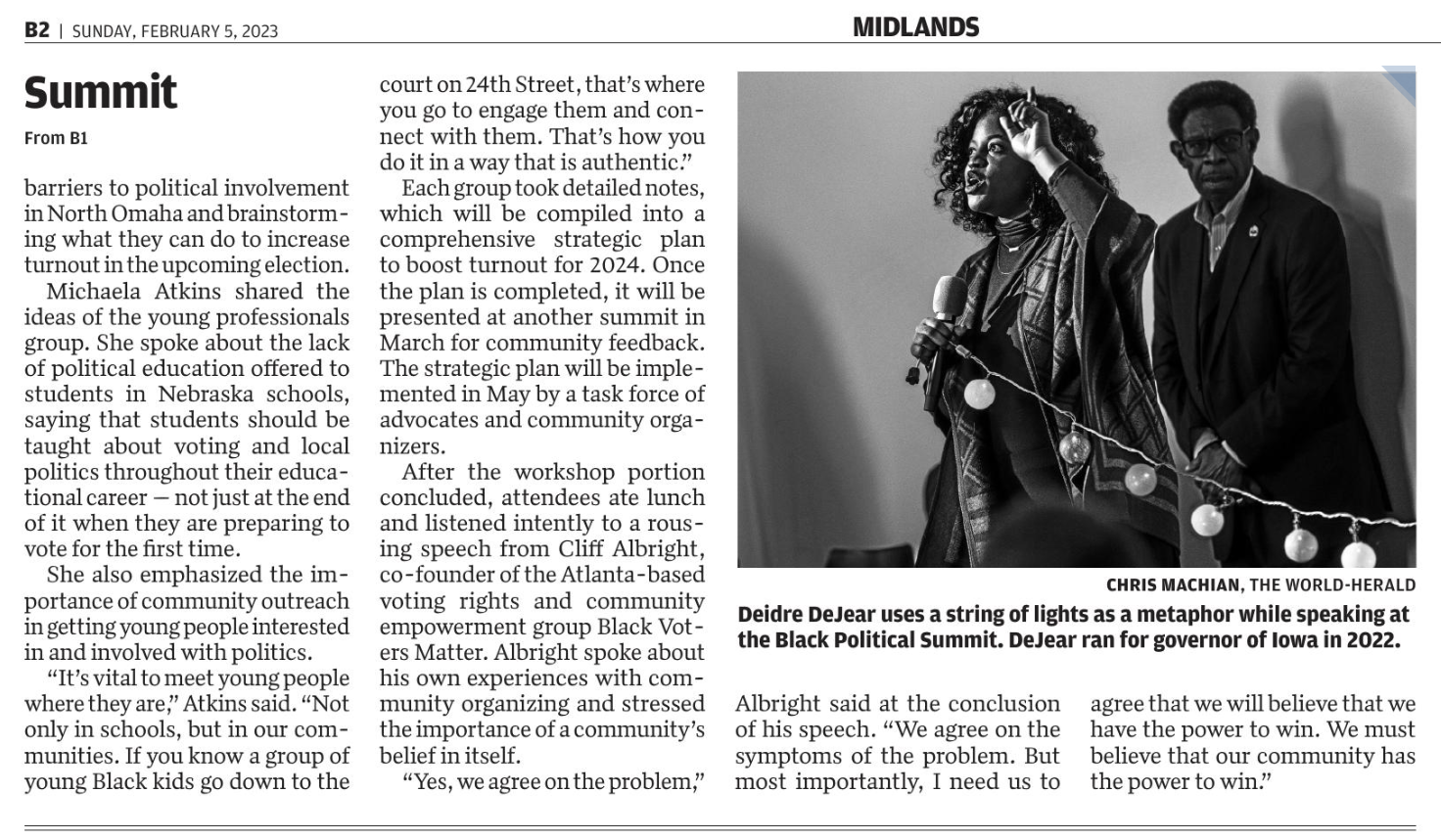


Black Political Summit marks start of effort to increase voter turnout in North Omaha
More than 100 Omahans gathered Saturday for the Black Political Summit, a high-energy nonpartisan workshop aimed at creating a plan to increase voter turnout and civic engagement in North Omaha.
The event was hosted by Preston Love Jr., the founder of Black Votes Matter Institute of Community Engagement, and represented the first step in the creation of a comprehensive 18-month plan to boost voter turnout in the 2024 election cycle.
North Omaha has long lagged behind the rest of the city in voter turnout. In the 2022 general election, only 45% of registered North Omaha voters, defined by Love as City Council Districts 1 and 2, voted. That was 9 percentage points lower than overall Douglas County turnout.
The goals set by Love and other organizers are lofty: They hope to register 15,000 new voters and raise North Omaha’s turnout percentage to 60% and 70% in the 2024 primary and general elections, respectively.
But with dedication, grit and a whole lot of community work, advocates say they are hopeful that it can happen.
Instead of a traditional conference with panels and speeches, Saturday’s four-hour event largely consisted of group brainstorming sessions. Attendees were split into five groups: community members, young professionals, Black church leaders, grassroots organizers, and other communities of color like Hispanic and refugee populations.
The groups spent an hour participating in lively discussions, identifying what they see as barriers to political involvement in North Omaha and brainstorming what they can do to increase turnout in the upcoming election.
Michaela Atkins shared the ideas of the young professionals group. She spoke about the lack of political education offered to students in Nebraska schools, saying that students should be taught about voting and local politics throughout their educational career — not just at the end of it when they are preparing to vote for the first time.
She also emphasized the importance of community outreach in getting young people interested in and involved with politics.
“It’s vital to meet young people where they are,” Atkins said. “Not only in schools, but in our communities. If you know a group of young Black kids go down to the court on 24th Street, that’s where you go to engage them and connect with them. That’s how you do it in a way that is authentic.”
Each group took detailed notes, which will be compiled into a comprehensive strategic plan to boost turnout for 2024. Once the plan is completed, it will be presented at another summit in March for community feedback. The strategic plan will be implemented in May by a task force of advocates and community organizers.
After the workshop portion concluded, attendees ate lunch and listened intently to a rousing speech from Cliff Albright, co-founder of the Atlanta-based voting rights and community empowerment group Black Voters Matter. Albright spoke about his own experiences with community organizing and stressed the importance of a community’s belief in itself.
“Yes, we agree on the problem,” Albright said at the conclusion of his speech. “We agree on the symptoms of the problem. But most importantly, I need us to agree that we will believe that we have the power to win. We must believe that our community has the power to win.”
